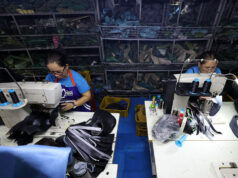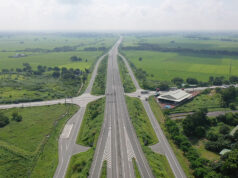Palace on Venezuela leadership crisis: ‘We're friends to all, enemies to none’
By Arjay L. Balinbin
Reporter
ANALYSTS SOUGHT for comment had varying opinions on whether the Philippines should take a stand amid pressure from the United States for countries to “pick a side” on the leadership crisis in Venezuela, a matter on which the Philippines has no official stand so far.
US Secretary of State Mike Pompeo has urged the international community to “pick a side” and the United Nations to “recognize” opposition leader Juan Guaido as Venezuela’s new president, in place of Nicolas Maduro.
President Rodrigo R. Duterte’s spokesman Salvador S. Panelo said the matter was not tackled at the Cabinet meeting on Feb. 6. “Wala. Hindi namin napag-usapan (None. It was not tackled),” he said. “Basta ang policy is friends to all, enemies to none.”
Richard J. Heydarian, nonresident fellow of Stratbase ADR Institute, said in a phone interview on Feb. 6 that the best thing for the Philippine government is “to abstain and keep its statement as generic and non-partisan as possible because the issue is definitely a minefield.”
He added: “If you look at the European Union and the Union of South American Nations, they all support the opposition. So it will be kind of weird for the Philippines to take the side of the opposition because [the country] has sided against EU and the West on issues like Burma, North Korea, among others. On the other hand, if we side with the Maduro administration, it will also put us in a very strange situation whereby we are more aggressively opposing the United States, EU, and other countries. That also has its own implications, so I think the best thing for the Philippines is just to issue a generic statement saying that the sovereignty of the country has to be supported and that we have to support also peaceful political transition.”
He explained that the emphasis on the political transition is “the most important thing, which would mean political transition in terms of the opposition giving up its challenge or Maduro giving way, and that is the safest thing for the Philippines to emphasize without necessarily taking the side of the opposition which is supported by the West or the Maduro administration….”
Mr. Heydarian said further that if the Philippines will openly support the opposition, it would mean “we are supporting external interference and coups, which I don’t think serves the interest of the Duterte administration or the Philippine government in general.”
University of Santo Tomas Political Science Department chairperson Dennis C. Coronacion said in a phone message on Feb. 15: “It is not in our nation’s interest to side with any of the political factions in Venezuela.”
“We have no considerable number of Filipinos working in that country. Also, Venezuela is neither our major trading partner nor a source of huge investments. But we’re hoping that the crisis the country is going through will be resolved soon and peacefully, and that the outcome be in accordance with the desire of the Venezuelans,” he also said.
Also in a phone message, political history assistant professor Marlon B. Lopez of the Mindanao State University-Tawi-Tawi College of Technology and Oceanography said: “The Philippines should definitely take a side on this and it should be on the side of the people’s will and in the name of genuine democracy and not by cold war politics and superpower assertions.”
Mr. Lopez said this will serve as “a test for the world powers to be more responsible in their foreign policies and create a world fertile for democracy and freedom. The government should side with states condemning unilateral and provocative actions which undermine Venezuelan sovereignty and government which is currently under attack by sanctions and under…military threats.”
For its part, Bagong Alyansang Makabayan (BAYAN), in its Jan. 25 statement, said: “[We] call on the Filipino people to condemn the underhanded tactics of the US government under Trump in manipulating the political climate, supporting the attempts of US-backed anti-Maduro elite at coup d’etat and artificially creating strife and chaos in Venezuela.”
Also in a statement last month, the Philippines-Bolivarian Friendship Association (PBVFA) said: “People all over the world are outraged to witness yet another attempt by US Imperialism to overthrow a duly-elected leader whose vision for his people challenges a global system based on war and occupation and one that can only reap profits for the 1% through oppression and exploitation of the world’s working poor.”
“The Philippines-Bolivarian Venezuela Friendship Association attests to the isolated status of the right wing Popular Will Party led by Juan Guaidó as well as to the Bolivarian people’s overwhelming support of the Maduro presidency. President Nicólas Maduro was reelected last year by 67% of voters. During his inauguration on January 11, 2019, thousands upon thousands of joyful Venezuelans took to the streets of Caracas and other places to express their full support and joy in renewing their collective promise to fulfill the goals of the Bolivarian Revolution, against all odds.”
Alex Veliz, a netizen, has put up a petition on Change.org asking “the Filipino government to recognize Juan Guaido as president of Venezuela.”
“We request in earnest for your support to help improve the political landscape of Venezuela and in turn, reinstate democracy in our country. Interim President Juan Guaido is leading the way for the greatest and most positive change that Venezuela has had after two decades of mounting crisis, shortage and tyranny. He has received extensive support and recognition from many nations and we hope The Philippines can recognize him too. We, the Venezuelan citizens residing in the Republic of the Philippines, advocate for this cause and we hope to obtain your support,” the petition reads.



